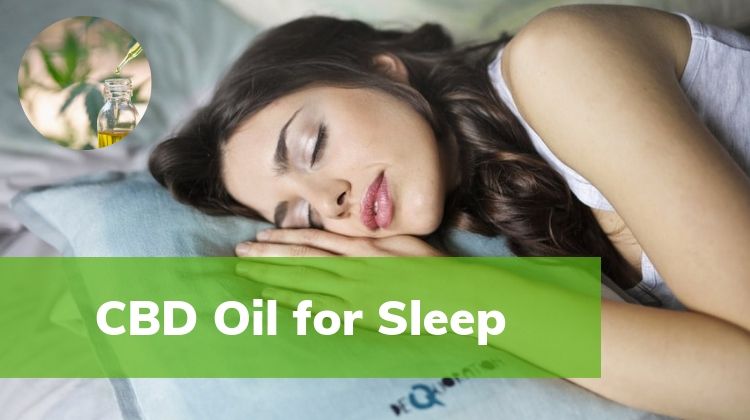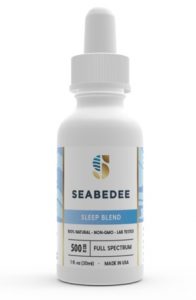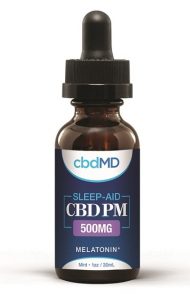Although chronic insomnia is a serious health condition that affects as many as 10% of Americans, milder problems with sleep can also have a negative impact on our health and quality of life.The Centers for Disease Control (CDC) reports that as many as 1 in 3 American adults are not getting enough sleep!
Making matters worse, many of the common medications used to treat intermittent or chronic sleep problems have significant negative side effects, particularly if taken more than occasionally.
As a result, many people are turning to natural remedies, including cannabidiol (CBD), one of the many compounds with healing properties found in hemp. But there's a lot you need to learn about using the best cbd oil for sleep.
Top CBD Products for Sleep:
Product
Header | Product | Details | Price |
|---|---|---|---|
Best Overall Seabedee Sleep Blend | Best Overall | Seabedee Sleep Blend | |
Best Edibles Hemp Bombs Sleep Gummies | Best Edibles 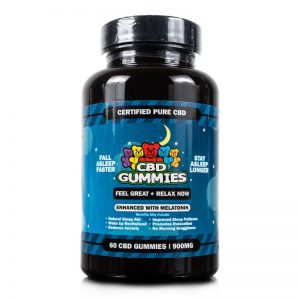 | Hemp Bombs Sleep Gummies | |
CBD PM by cbdMD | CBD PM by cbdMD | Use coupon OilGeek at checkout for 15% off | |
CBDPure | CBDPure | ||
Best Vape Oil Hemp Bombs | Best Vape Oil | Hemp Bombs |
Traditional Sleep Medication and Side Effects
There are several classes of pharmaceuticals that are commonly used to help people with insomnia. However, they each come with side effects that you should be aware of.
In addition, none of the medications developed for improving sleep or decreasing insomnia are recommended as safe for long-term use. Those with chronic insomnia are often treated with a combination of cognitive therapy options in addition to the use of various pharmaceuticals.
CBD is safe, with few known side effects. This natural compound has low toxicity and is not addictive.
Research on CBD and Sleep
While the use of cannabis (marijuana) has been used across many cultures for centuries to help with sleep, it is not fair to say that this is enough to conclude that CBD is, therefore, a sleep-inducing agent.
CBD or cannabidiol is one of 80+ cannabinoids found in cannabis.
THC, or Tetrahydrocannabinol, is also present in cannabis in high doses. This compound is known for its sleep-inducing qualities, as well as a mind-altering “high” state.
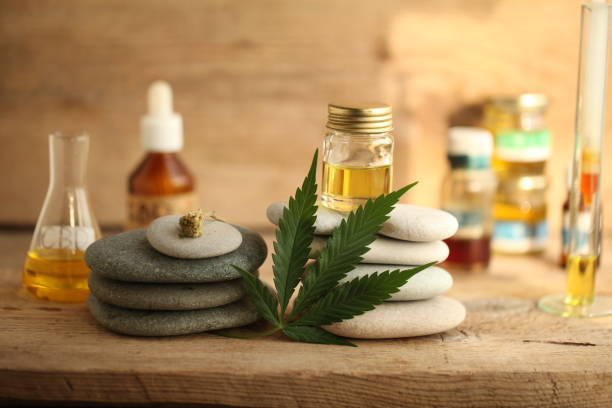
CBD, however, does not get you high, and it’s legal without a prescription in all 50 states.
There is scientific evidence to suggest that when taken in isolation, CBD is a wake-inducing agent, which is pretty much the opposite of what an insomniac is looking for, right? Well, it’s complicated.
And, to be completely honest, this is an area of scientific research that is not well developed enough to make any strong claims either way. Much of the research on isolated CBD has been done on rats, and much of the research on CBD and human sleep has been done via pharmaceuticals developed with a 1:1 THC:CBD ratio, such as Sativex®.
Still, anecdotal evidence from thousands of CBD users suggests that there may be major sleep benefits from CBD. In a survey of 2,400 medical cannabis users, 60% reported using CBD to improve sleep. While this is no substitute for empirical research, there are three health benefits that we do know about CBD which may benefit our sleep:
Anxiety
Many users report a calming effect of CBD oil. In fact, there is empirical evidence from studies done on humans that CBD can have a significant impact on reducing anxiety.
The so-called “calming effect” of CBD reported by many CBD users may be related to these anti-anxiety properties. And, since anxiety can be a major contributor to difficulties getting to sleep, getting quality sleep, or staying asleep, many people may find that CBD works for better sleep.
Pain
One of the most well-known properties of cannabinoids is their relationship to reducing the perception of pain.
In the broadest sense, we have known for centuries that pain and sleep are deeply interrelated. Not only can pain decrease sleep quality and duration, but the reverse effect is also true: Poor sleep leads to more intense sensitivity to pain.
In fact, the reduction of pain and better sleep has been studied in patients that have been undergoing treatment for pain with a few of the new pharmaceuticals developed from cannabis.
For example, Sativex® (which contains both CBD and THC) has been used to treat pain for patients with multiple sclerosis, cancer, and peripheral neuropathic pain. When studied for their sleep patterns, one of the benefits of the medication included significantly improved sleep. Not only was the effect significant, it also endured over time without an increase in the amount of medication.
Sleep Regulation
As mentioned above, if CBD is thought to be a wake-inducing agent, then how can it benefit those who are trying to get more sleep? One answer to that may be that the body’s natural sleep patterns are governed in part by the endocannabinoid system.
Think of sleep patterns as being about both wake and sleep cycles. To have a healthy sleep, you not only need to have quality ZZZ’s, but you also need to be fully awake during the daytime hours.
Thus, one way that CBD may work to help promote better, longer sleep is to improve our “awakeness” during the wake cycle, reinforcing the entire sleep cycle and promoting better sleep stability as a result.
To be clear, this is but one theory in a still nascent branch of research on CBD and sleep.
How to use CBD oil for Sleep
There are several ways to use CBD oil, but the two most common ways to take CBD for better sleep include tinctures and capsules.
Tinctures:
When CBD is extracted from hemp plants, it is in the form of hemp oil. This oil is then added to a carrier oil. The least processed way to consume CBD is in the oil form, usually sold in small tincture bottles with an eyedropper cap.
There are two main ways to use the tinctures. You can drop the recommended dosage directly under your tongue where the CBD will be absorbed directly into your bloodstream. Or, you can add the drops to food or drink and eat them.
Under the tongue is probably the fastest (besides perhaps vaping) way to feel the effects of CBD and probably the best way to time your dose if you find that you get the most calming effect so many hours after dosing (see the below notes about timing).
Capsules:
Capsules offer very precise dosing and the most convenience because they are as simple as popping a pill.
However, there are a few downsides to going with a CBD capsule for sleep. First, they can be a bit more expensive when you calculate the cost per mg of CBD. Second, when you take CBD orally the time to feel the effects can be variable, anywhere from 30 minutes to a few hours.
That being said, some people find that taking a daily dose of CBD at a specific time of day, even in the morning, can have a positive effect on their sleep over time. Capsules are a great way to be consistent by adding your dose to your regular medication routine in the form of a pill.
Timing:
Another consideration in terms of getting the best results in terms of improved sleep with CBD oil is when you take your dose. Unfortunately, there is no simple answer to this and you will have to do some experimenting to find what works best for you.
Some people find that they get an initial waking feeling from CBD, and they find that taking it too close to bedtime can actually make it harder to get to sleep. In such cases, taking your dose 2-3 hours before bedtime might help.
Others find that taking CBD at a regular time in the morning has an overall positive effect on making their sleep better, but only after a few weeks of regular dosing.
CBD Oil Dosage for sleep
Dosage:
Dosing CBD can be complicated because so many different factors can play a role in what works. For example, if you are using CBD for pain to improve your sleep, then it might take a higher dose than if you are using CBD oil to help with anxiety. In addition, your body size and experience level with CBD can impact what dose will be best for you.
In general, just start with the recommendations for dosing that are provided with the product you buy. This way, you have a starting point that is calibrated to the strength of the oil you are using. Start at the low end and work your way up over time.
How long before CBD will improve my sleep?
It is not entirely understood why, but CBD supplements can take a few days to a week of regular use before they start to have the desired effect.
One theory is that inexperienced users need some time to build up the CB receptors in the nervous system that are actually able to process and make use of the compounds found in hemp.
Give yourself some time to adjust to CBD oil, starting at lower doses, working up over the course of a week. You should feel noticeable effects within a week of consistent use.
When to take it – you should take cbd half an hour to an hour before bed time to get the best impact.
Conclusion
The purpose of this article was to give my readers all the information they need to decide if CBD oil is right for you. I tried to include the latest research so that you can make the best choice for your health needs.
I am always very interested in hearing from readers about your experiences with these or other CBD products. Has CBD helped your sleep? If so, what dosing, methods of consumption, and timing works best for you?
Please feel free to join the conversation in the comment section below.
